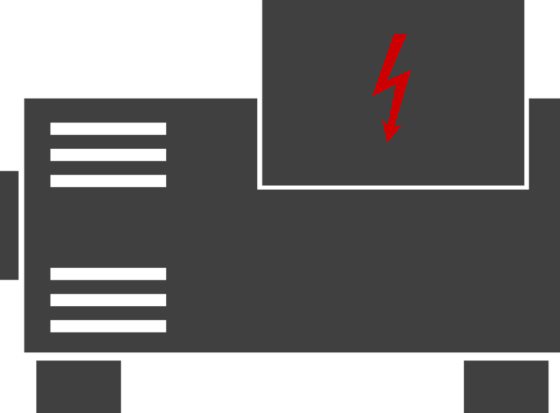Power generators can be an incredibly useful thing to have around, especially as a business, or if you’re in an area prone to power outages. But how do they work? What are the options when it comes to fuel sources? What are some potential problems?
There’s a lot of detail to be looked at when it comes to understanding generators, but with a little research, finding exactly what you need in your power system, the right generator type, and the perfect generator suppliers doesn’t have to be difficult. But first, how do they work?
The Basics
In short, the majority of power generators work very simply by burning or processing the fuel which provides motion for the generator. When combined with electromagnets electricity is produced, with the electricity now ready to use.
There’s some slight variations on this principle, but for the most part, generators are fairly straightforward, which is just as well, because when it comes to a back-up of any kind, you’re going to want reliability.
Different Fuel Sources
There’s a few different options available when it comes to different fuels for power generators. Obvious choices are petrol and diesel, but you can also have gas and CHP powered generators.
Diesel is good for super-silenced options, but when it comes to choosing your generator, you want to be thinking about what fuel you have in abundance, or cheaply available to you, or how you specifically need the generator to behave. For instance, do you need to avoid fumes coming off the generator, or will it be outside?
Noise Levels
One of the biggest aspects of choosing a generator is the noise levels. Depending on what you’re using the generator for, it can be extremely important to avoid renting or buying a machine that kicks out a lot of noise, for instance, if it’s to be installed in a domestic property.
You can find super-silenced options when it comes to diesel power generators, which can be absolutely perfect for areas when noise levels are to be kept to a minimum. If sound doesn’t matter too much, you can find cheaper options that work just as well for your needs.
Why Would You Need a Generator?
There’s a lot of different applications for generators. Whether you’re in an area prone to black or brownouts, or you need a backup for your business or commercial enterprise, or even if you simply want peace of mind when it comes to power, a generator can be incredibly handy to have in a squeeze. You can either purchase a generator or go for a rental option, so it can be fairly flexible.
Many businesses require back-up generators, especially if they’re maintaining servers that cannot be allowed to go down. For areas where you’re prone to regular power outages, life can’t be allowed to stop every single time, so keeping the power flowing is a must.
